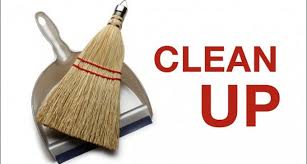- Home
- Questions and Answers
- Cleaning Up Non-Profit Books
Clean Up Books Bookkeeping Question
by Marti
(Florida)
A friend has approached me with a bookkeeping favor, seeking assistance to rectify her financial records and bring her back on track.
Among the challenges she faces are unpaid checks lingering in her online business bank account for a staggering period of 3 to 4 years. These checks have not been cashed, possibly voided, and have been long forgotten.
Now, the question arises: How can we effectively clean up this mess and bring her books up to date?
Comments for Clean Up Books Bookkeeping Question
|
||
|
||
|
||
Cleaning Up Non-Profit Books
I am working with a new non-profit. They did not keep accurate records for the year. While their bank statements show more income that they show invoices for, the invoices do not match the deposits.
This is a small group that provides housing and services to adults with mental illness. The person who sent out the invoices always billed for the standard amount. However, if the client was served for less than the month invoiced, they got paid based on the actual length of time in the agency's care.
So, I have invoices marked paid, but the amount was wrong. I don't see any misuse of funds - in fact the deposits recorded by the bank are considerably higher than the total of invoices.
I know that the founders put considerable amounts of their own money into the agency to get it started. How do I reconcile this so that the accounts balance?
Comments for Cleaning Up Non-Profit Books
|
||
|
||
Please subscribe to my monthly newsletter, Bookkeeping Basics E-zine. It tells you every month about the new information that I have added, including some great tips and advice from myself and other Bookkeeping Basics readers.
Like Bookkeeping-Basics.net?
- Home
- Questions and Answers
- Cleaning Up Non-Profit Books














